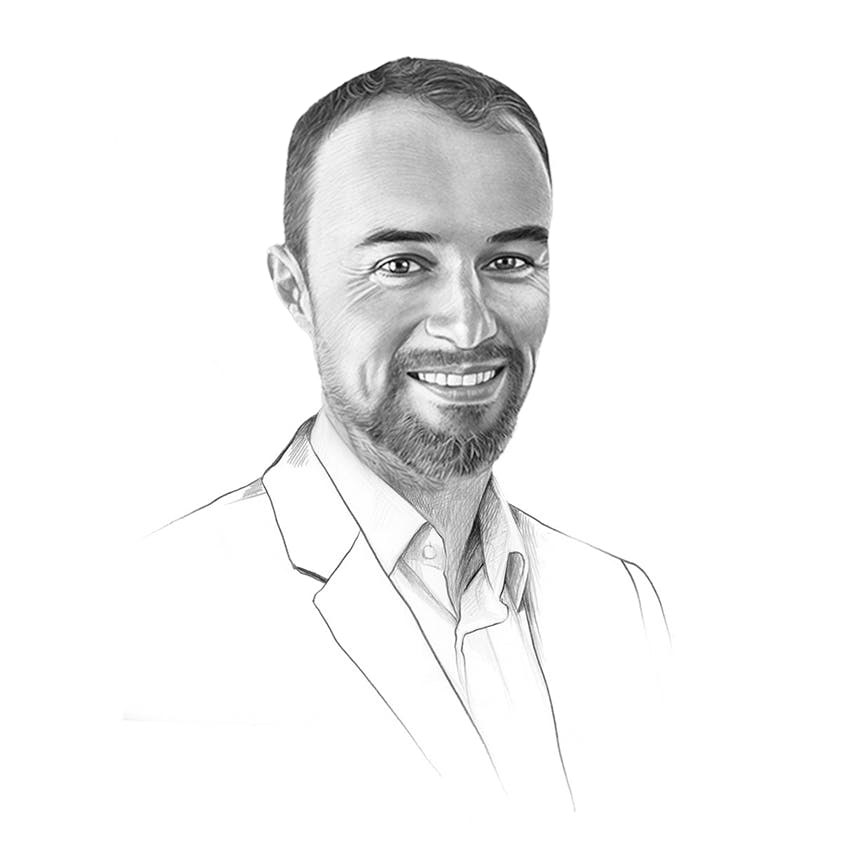
The basics of investing
Everyone handles money differently. Some are conscientious savers, others spend it freely. In between, there are all kinds of models. However, most people have one thing in common: in Switzerland, people don't like to talk about money.
Yet sometimes it is important to talk about money and ask yourself: «How should I invest my money?» This is particularly true when you have accumulated a considerable amount in your checking or savings account. In today's low-interest environment, this is more important than ever.
Regardless of whether you are generous with your budget or put every penny aside, sooner or later the time will come: when you start your career, when you inherit something, or perhaps only when you withdraw capital from your occupational pension fund.
The following overview shows the options available – and their advantages and disadvantages.
The bank account
Everyone has at least one and knows how to use it. However, there is no real interest. Alongside cash, a bank account is primarily a place to store money. With «security», immediate access, and ease of use, banks promise the perfect solution for anyone who doesn't want to spend too much time managing their finances. You trade maximum liquidity for minimal returns.
Deposits are exposed to the bank's counterparty risk; at private banks, the first CHF 100'000 is protected by deposit insurance. At many cantonal banks, the state is liable for the bank's liabilities without limitation. This is not the case in the cantons of Bern, Vaud, and Geneva.
Since interest rates have fallen again, savers have been left behind. This may be bearable for smaller fortunes, but it is not satisfactory. In addition, the bank fees introduced during the last zero interest rate phase are being stubbornly maintained.
One exception is the third pillar pension account. Here, interest rates are slightly higher and, as an incentive, contributions can be deducted from taxes. Employees who are members of a pension fund can currently contribute a maximum of 7'258 Swiss francs per year. The amount is higher for self-employed people without a pension fund. However, the high level of security and tax relief come at the price of restrictions on availability: money from a 3a account can only be withdrawn upon retirement. Exceptions are cases such as emigration, buying a house, or becoming self-employed.
The following are the average interest rates in spring 2025 by account type:
- Checking account: 0%
- Savings account: 0.35%
- 3a account: 0.54%
Medium term notes
Until the 1990s, these were one of the most popular investment instruments in Switzerland. They offer a fixed interest rate over a fixed period of one to ten years (for terms of up to one year, banks use the term «fixed-term deposit»). In both cases, the capital is tied up for the duration of the term.
Medium term notes were relatively attractive back then, but less so in today's low interest rate environment. They are also non-negotiable. Penalty interest is payable on early redemption, and there is a risk of default if the bank becomes insolvent. It is therefore worth considering alternatives here too.
Trade on the stock market yourself
Do you think you have a nose for certain stocks and the right timing? Or are you a specialist in an industry and see trends that the masses don't recognize? Trading on the stock market yourself is tempting and has become extremely accessible thanks to apps and smartphones. Many financial institutions and neo-banks offer online trading, where you can trade, check prices, and consume financial news. Of course, there are advantages and disadvantages:
- Time-consuming: The work is up to you. You have to diversify and be your own risk manager. And you have to keep your portfolio on track at all times. That costs money.
- High risk: Many investors overestimate themselves, buy or sell at unfavorable times, trade too frequently, or make other investment mistakes.
- Liquidity: If you need money urgently, you naturally have more control when investing independently and can quickly sell securities. However, selling loss-making positions often takes a lot of effort.
- Minimum deposit: Online trading is possible with small contributions, although this only makes limited sense.
- Emotionally stressful: The ability to trade immediately creates an incentive to intervene frequently. Your own instincts and emotions get in the way.
Traditional wealth management
The core discipline of private banking in Switzerland is wealth management. If you want your money to be managed professionally, you may find the right partner here after a few preparatory and advisory meetings. Once the contract is signed and sealed, you as a client do not need to invest much time.
However, the barriers to entry are high: many banks only accept clients with assets of CHF 100'000 or more, and in many cases only those with assets of CHF 500'000 or more. And the average cost of a wealth management mandate is 1.3 percent per year, according to Moneyland. On top of this, there are additional, unreported fees that significantly reduce long-term returns.
Another disadvantage is the lack of liquidity: depending on the contract, it can take weeks or months before you have access to your money. And, of course, there are risks here too. Even wealth managers are only human and invest your assets on the markets. Then there are 'selfish' funds: banks and asset managers have an incentive to promote their own funds in order to collect commissions on two levels. It is also not uncommon for them to have distribution partnerships with third parties, which generates commissions.
Digital wealth managers
Online wealth managers, often referred to as robo-advisors in their early years, are providers such as True Wealth, which offer wealth management via an app. A rule-based system makes the investment decisions. Investments are passive and index-oriented, with the aim of maximizing market participation. This means that the money is invested in a bundle of ETFs (exchange-traded funds) to cover the various markets and asset classes and also to enable granular adjustments. This is not possible with a savings plan that pays into a single global equity ETF. The multi-asset portfolio is tailored to the client's risk tolerance. Currency risks can be partially hedged.
The return is generated by the overall growth of the markets in which the funds are invested. The securities are held in an account in the customer's name at a custodian bank and are separate assets. This means that they are not included in the insolvency estate if the bank or wealth manager collapses.
There is also an entry barrier here. With True Wealth, the minimum amount is 8'500 Swiss francs. In return, clients benefit from low overall costs, professional risk management, and high liquidity. In addition, there are people behind the investment solution who are easily accessible if you have any questions.
With True Wealth, you can view your portfolio at any time and access your money within a few days. Pillar 3a and ETF children's portfolios are also seamlessly integrated, with a minimum deposit of 1'000 Swiss francs.
Conclusion
If you want to avoid effort and price risks, a bank account is a suitable place to park your money. It scores highly in terms of liquidity. However, customers must accept that their assets will gradually lose purchasing power.
Professional wealth management is unattractive or even inaccessible to most investors due to its costs and the investment amount required. In addition, traditional, actively managed wealth management mandates rarely deliver on their return promises after costs.
Online wealth managers such as True Wealth offer an alternative: low costs, a long-term investment approach, little effort, free e-tax statements, and full transparency. For investors who can bear a certain amount of market risk and want a customized investment strategy, this is a very attractive and convenient solution.
About the author

Founder and CEO of True Wealth. After graduating from the Swiss Federal Institute of Technology (ETH) as a physicist, Felix first spent several years in Swiss industry and then four years with a major reinsurance company in portfolio management and risk modeling.

Ready to invest?
Open accountNot sure how to start? Open a test account and upgrade to a full account later.
Open test account